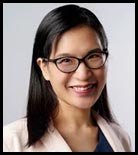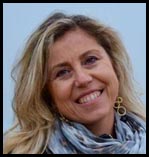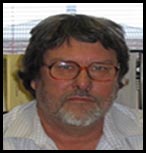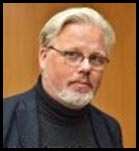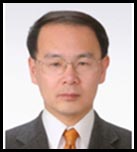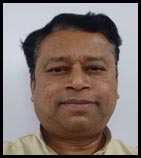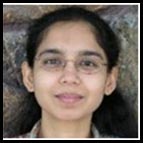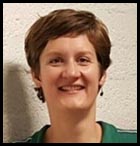 |
ISCApad #278 |
| Monday, August 09, 2021 by Chris Wellekens |
2 ISCA News
| 2-1 | Message from our president Professor John H. Hansen Aug. 6, 2021
Dear ISCA members:
Welcome to the next installment of the ISCApad for August 2021. In this monthly message to all our members, I highlight recent activities for ISCA, Interspeech events, upcoming opportunities to contribute/serve/participate in ISCA, and the announcement of ISCA Board for 2021. Please see all the announcements in this issue for more details!
While worldwide the impact of COVID19 Pandemic had been going down earlier this summer thankfully to the emergence of multiple vaccines and people moving to be vaccinated. Unfortunately, the emergence of the Delta Variant has caused an upswing in cases, with many of the non-vaccinated being hospitalized. While we as a society continue to move forward with both scientific and technical advancements, please believe in the science and do all you can to get your vaccine shot as well as encourage others to get vaccinated. I encourage all to take all necessary steps to protect yourselves, family, and friends – please wear a mask (even if our speech characteristics change), get vaccinated, and stay safe! Interspeech-2021 is less than one month away, and will be held in a hybrid mode with both in-person and remote access. We recognize there are additional travel constraints these days, so we hope to see all either virtually or in-person for INTERSPEECH-2021.
ISCA Board – Elections for 2021: As reported earlier this summer, we have completed the election process for the ISCA Board for those members completing their service. Again, many thanks to all ISCA Members who participated in both the Nomination and Voting process! We will have another election in 2 years for the next portion of the ISCA Board who will be completing their service. The following 8 individuals were elected to the ISCA Board for 2021-2025 (in alphabetical order). Four have been re-elected for a second term on the ISCA Board (noted as returning Board member).
Nancy Chen, Singapore (newly elected to ISCA Board)
Mariapaola D'Imperio, USA (newly elected to ISCA Board)
Phil Green, UK (re-elected to ISCA Board, 2nd term) Joakim Gustafson, Sweden (newly elected to ISCA Board)
Tatsuya Kawahara, Japan
S R Mahadeva Prasanna, India (newly elected to ISCA Board)
Bhuvana Ramabhadran, USA (re-elected to ISCA Board, 2nd term)
Odette Scharenborg, Netherlands (re-elected to ISCA Board, 2nd term)
Congratulations to all those elected to the ISCA Board this year! We look forward to your contributions and impact for our society. INTERSPEECH-2021 (Hybrid Virtual/In-Person): [http://www.interspeech2021.org/] Brno, Czech Republic (Aug. 30 – Sept. 3, 2021) INTERSPEECH-2021 (IS-21) Committee along with the ISCA Board have worked extensively to complete the technical program for INTERSPEECH. The paper review process being completed, this past month all sessions and session chairs were established. An additional challenging task since IS-21 Technical Committee needed to balance all presenting authors and session chairs with those attending in-person vs. those attending remotely. An extremely challenging task for the INTERSPEECH-2021 Technical Committee, who have consistently worked out effective solutions to navigate these pandemic challenges, all while ensuring the highest technical quality for this Interspeech Conf.
INTERSPEECH-2021 will be “hybrid”, with full information on the website: https://www.interspeech2021.org/. The team has done an excellent job in balancing the experience for both in-person and virtual attendance with adjustments to time schedules with time zones (see the program page on INTERSPEECH-2021 https://www.interspeech2021.org/program website.
Closing: We hope all of you are staying safe, and continue to push forward and contribute to both the science and technology advancements in Speech Communication. We look forward to seeing you all virtually or in person at ISCA INTERSPEECH-2021 this year in Brno, Czech Republic.
As always, we welcome feedback and input from the ISCA community – if you have suggestions for our society or want to be involved, please let us know!
Until next month, stay safe and stay connected to our community!
John H.L. Hansen (ISCA President)
| ||
| 2-2 | In memoriam: Professor J.P. Tubach by Professor Eric Moulines I had the chance to meet Jean-Pierre Tubach when I was still a student at Télécom Paris in the mid-80. I had just decided to undertake my PhD on speech synthesis. Who could have been a better mentor? Jean-Pierre was a sunny personality, very generous and benevolent to young explorers, PhD students; he was very accessible and put people at ease right away, I have never seen the door of his office closed. He took the time to guide me through my first readings and he helped me to dispel the legitimate fear that every student feels when he takes his first steps into the world of research. Jean-Pierre was already an authority on speech processing in the French community. The authority of Jean-Pierre rested on a brilliant scientific career. Jean-Pierre was a pioneer of speech processing in France, one of the first to tackle the difficult problem of speech recognition, fearlessly venturing into uncharted territory. It was a pioneering time, there was much to do, and all avenues were open. He was an engineer at heart, but he was also very interested in phonetics, speech production, speech perception, in other words, the 'basic' sciences behind speech communication engineering. After his PhD, he spent more than 15 years in the IBM France Scientific Center, a real talent incubator, a kind of Google Lab of the XXth century, the kind of place that made the most talented young engineers and researchers fantasize in the 70s and 80s. The real deep appeal he had was nevertheless for more fundamental research and after his 15 years at IBM he came back to Telecom Paris to pursue his research. With Louis-Jean Boe, he has produced in 1986 a phonetic dictionary of the spoken French, de “A à Zut”, a Benedictine work based on the segmentation and the precise annotation of more than 10 hours of speech, colossal work at the time, the connoisseurs will appreciate the tour de force. Jean-Pierre had kept both feet on the ground; he guarded against excessive academicism, ethereal thoughts, and grand theoretical conjectures. On the contrary, he had a penchant for things that 'worked', things that could be demonstrated and that brought solutions to real problems. Collecting phonetic knowledge was a step to feed Jean-Pierre's baby of that time, the development of an object oriented language designed to mix expert and procedural knowledge for speech recognition. He also believed a lot in the development of spoken dialogue systems. In the mid-80s, none of the technologies such as speech recognition, speech synthesis, or dialog management were very mature, but it took more to stop the intrepid Jean-Pierre! He spent at most 2 years patiently developing a small dialog system 'from scratch'... It was a time when programming in Pascal was considered something fancy - the bravest used ADA -, when machines were called VAX, when people did not hesitate to develop a Prolog interpreter in Pascal, starting almost from scratch... The price to pay was, of course, very high! Jean-Pierre and his students spent countless hours in front of the VT100 to make it work! When I came back to Télécom Paris in 1990 as an assistant professor, I had the chance to co-supervise several students with him. The work meetings were privileged moments: Jean-Pierre was very curious, always willing to understand the details, he liked to go to the end of things, he was very demanding but was very benevolent and generous with students whom he always defended and encouraged. The end of the 1980s and the beginning of the 1990s were a time of very rapid development of research at Télécom Paris. Jean-Pierre, in his own unconventional way, was a driving force. He had kept a form of ingenuity that was not devoid of malice, which made it very rare to find oneself in conflict with him. And if he sensed any tension, he defused it very quickly with one of those verbal pirouettes which was his trademark. That didn't stop him from throwing a few tantrums, because he didn't like to be messed with and he made it known. But like a rainstorm, it would fall hard but it never lasted very long. Attending a meeting with Jean-Pierre was always a moment of happiness, he spoke little, but listened a lot. He knew how to cultivate this side of 'wisdom' which suited him so well and which basically allowed him to advance his own agenda without pain because you would not even notice he was in the driver seat. We gradually parted ways in the late 1990s, when Jean-Pierre merged into the technostructure. Jean-Pierre became first head of the lab and then scientific director of the school, an extremely important role as the lab had grown very large in the early 2000s. These were the glory years of the LTCI (Laboratoire de Traitement et Communication de l’Information), which was then one of the largest French laboratories in ICT. I understand that Jean-Pierre had no particular desire for this kind of responsibility, but he was by no means a person who wanted to give up. Jean-Pierre was an extraordinary person in the true sense of the word. He had his own style, a real originality in his way of being and behaving He was open to others, generous and everyone loved him for his simple way of being, his mischief and his kindness. I know that I’ll miss him. Professor Eric Moulines, Ecole polytechnique Membre de l'académie française des sciences.
| ||
| 2-3 | ISCA-PEDRAC: a new service of ISCA. ISCA-PECRAC (Postdoc & Early Career Researcher Advisory Committee) is pleased to invite postdoc & early career researchers to participate in the 1st Early Career Researcher Annual Gathering @ Interspeech 2021 (online this year).
The Early Career Researcher Annual Gathering aims to provide an opportunity for postdoc & early career researchers to meet and communicate at INTERSPEECH. In the framework of ISCA-PECRAC, we would like:
1st Early Career Researcher Annual Gathering @ Interspeech 2021 Time : August 30 at 18:00 - Brno time (preliminary slot) Location : Online Program :
Contacts: Yaru Wu (yaru.wu@sorbonne-nouvelle.fr) Berrak Sisman (berrak_sisman@sutd.edu.sg)
| ||
| 2-4 | Daniel Michelsanti, recipient of the 11th CHRISTIAN BENOIT Award Congratulations to Daniel Michelsanti who is the winner of the 11th Christian Benoit Award. Dr Michelsanti received his PhD at the Aalborg University , Denmark on December 18, 2020 with a thesis entitled
Audio-Visual Speech Enhancement Based on Deep Learning under the guidance of Prof. Zheng-Hua Tan and Prof. Jesper Jensen
| ||
| 2-5 | ISCA social networks We encourage all members tokeep contact with ISCA via our social nets. Also you will bde kept informed about all events on our website. This is particularly important in this time where due to the coronavirus, many modifications may be brought to the conference.
ISCA Facebook : https://www.facebook.com/iscaspeech/ ISCA Twitter : https://twitter.com/ISCAFOX ISCA SAC Student Facebook : https://www.facebook.com/groups/98794207409/ website : www.isca-speech.org
| ||
| 2-6 | ISCA Distinguished Lecturer for 2021-2022 ISCA Distinguished Lecturer for 2021-2022
| ||
| 2-7 | Women in Speech Research
| ||
| 2-8 | Code-of-Conduct for Conference and Workshop Attendees Code-of-Conduct for Conference and Workshop Attendees
| ||
| 2-9 | Code-of-Ethics for Authors (updated) Code of Ethics for Authors
| ||
| 2-10 | Publications and Videos of Speech Prosody 2020 The papers are already publicly available, at https://www.isca-speech.org/archive/SpeechProsody_2020/ . To also see the videos, you can register for the conference, for only 4000 Yen, at https://www.gavo.t.u-tokyo.ac.jp/sp2020_registration/vp/ .
| ||
| 2-11 | Reminder ISCA International virtual seminars REMINDER: ISCA INTERNATIONAL VIRTUAL SEMINARS Now's the time of year to start organising your seminar programme for the coming academic year. Don't forget that ISCA has recruited 17 leading researchers in Speech Communication prepared to give seminars on line. For instance, Gustav Henter of KTH Stockholm comments: As the person responsible for seminars at the Division of Speech, Music and Hearing (TMH) at KTH Royal Institute of Technology, in Stockholm, Sweden, I would like to thank you for the excellent initiative to set up ISCA international virtual seminars during the pandemic. Thus far our division has made use of this scheme on three occasions: The idea to invite distinguished speakers virtually has been widely appreciated by the department. It is likely that we may schedule further virtual seminar from your pool for our autumn semester seminars as well. For details, follow the entry Online Seminars in the left menu on the ISCA home page, https://www.isca-speech.org/iscaweb
-- ************************ Professor Phil Green SpandH Computer Science University of Sheffield ************************
| ||
| 2-12 | Prix de thèse AFCP - Edition 2020 Prix de thèse AFCP - Edition 2020
Après étude des candidatures par le Conseil d?administration de l?AFCP, compte tenu de la qualité des dossiers soumis, le prix de thèse 2020 a été attribué de façon exceptionnelle à deux jeunes docteurs :
* Hannah King pour sa thèse intitulée : « Seeing is perceiving: The role of the lips in the production and perception of Anglo- English /r/ », réalisée au Centre de Linguistique Inter-langues, de Lexicologie, de Linguistique Anglaise et de Corpus-Atelier de Recherche sur la Parole (CLILLAC-ARP) à Paris. La thèse est disponible en ligne : http://www.afcp-parole.org/wp-content/uploads/2021/02/Hannah_KING_PhD_thesis_2020_compressed.pdf.
* Fanny Catteau pour sa thèse intitulée : « Traduire la poésie en langue des signes ? L?empreinte prosodique lors du changement de modalité », réalisée au laboratoire SFL (Structures Formelles du Langage) à Paris. La thèse est disponible est ligne : http://www.afcp-parole.org/wp-content/uploads/2021/01/These_CATTEAU_2020.pdf
Les membres du Conseil d?administration de l?Association Francophone de la communication Parlée félicitent les deux lauréates et remercient par ailleurs l?ensemble des candidats pour leur participation et la qualité des dossiers qu?ils ont soumis.
Martine Adda-Decker,
présidente du CA de l?AFCP
Camille Guinaudeau,
coordinatrice du prix de thèse de l?AFCP
|

